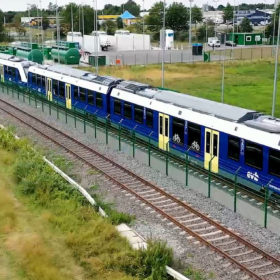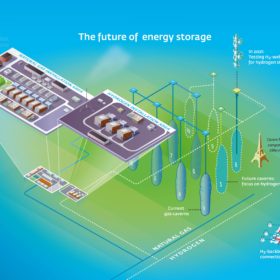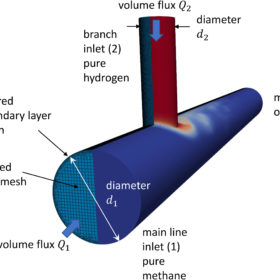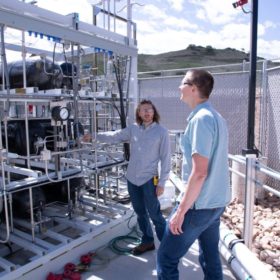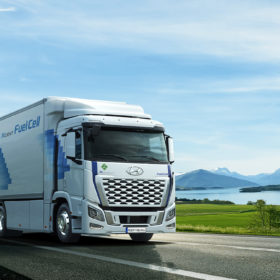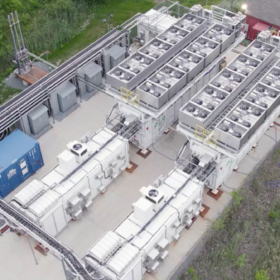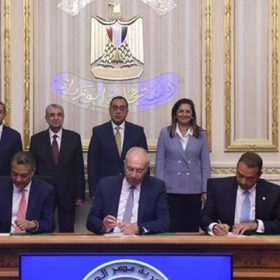The Hydrogen Stream: Germany launches world’s first operating hydrogen trains
Germany has launched the world’s first operational hydrogen trains and US researchers have presented a novel design for a tubular PEM fuel cell. ABB and Hydrogen Optimized, meanwhile, have expanded their strategic ties and Slovakia has moved forward with a major gas-blending pilot project.
Is the Canada-Germany ‘hydrogen deal’ overly ambitious?
The Canada-Germany Hydrogen Alliance is part of a wider deal that includes batteries and raw materials. Many details remain unclear, but the 2025 target for first deliveries is ambitious, says Paul Martin, the founder of the Hydrogen Science Coalition.
The Hydrogen Stream: Dye-sensitized photocatalyst promises most efficient solar water splitting to date
Japanese researchers have developed a new way to improve water splitting, while South Korea has completed its largest hydrogen production complex. Scotland and England have announced new hydrogen investments, and Uzbekistan and Saudi Arabia’s ACWA Power have agreed to collaborate on hydrogen projects.
The Hydrogen Stream: Bilfinger, Gasunie to commission first hydrogen deep underground storage in 2026
Gasunie will establish a total storage capacity of approximately 26 million kilograms of hydrogen, with the first storage facility to be operational by 2026. Porsche Engineering has revealed its findings on the potential of hydrogen combustion engines, while hydrogen plans advanced in Australia and Portugal.
The Hydrogen Stream: Guangdong targets €4.35/kg retail price by 2025
The authorities in China’s Guangdong province have released a 2022-25 plan that foresees the retail price for hydrogen dropping to less than CNY 30/kg ($4.42/kg). Germany and Canada, meanwhile, are set to strengthen their collaboration on hydrogen, and Ford has revealed plans to team up with Southern California Gas for a hydrogen fuel cell electric truck that will be on the road by 2025.
The Hydrogen Stream: Traditional hydrogen blending could damage gas pipelines, say researchers
UK researchers have revealed that gaseous hydrogen could cause problems in natural gas pipelines, while electrolyzer manufacturer Nel has announced plans to build a second production line in Norway.
The Hydrogen Stream: Proposed US tax credit could support US hydrogen
The US House of Representatives is set to vote on a bill this week that could provide a new production tax credit for green hydrogen production, while the European Commission has approved plans to support renewable hydrogen in Romania.
The Hydrogen Stream: Hyundai to export heavy-duty hydrogen trucks to Germany
Seven German companies have agreed to put 27 Hyundai heavy-duty fuel cell trucks into fleet service in the coming months. American Airlines has revealed an investment in ZeroAvia, while New Fortress Energy has invested in a 120 MW industrial-scale plant in Texas.
The Hydrogen Stream: Fuel cells for backup power
The PEM fuel cell test in New York demonstrated the viability of this technology at 3 MW, the first time at the scale of a backup generator at a data center. Meanwhile, a Spanish-Indian venture will develop up to 300 MW of installed green hydrogen production capacity in the Iberian Peninsula, and a Norwegian-German partnership aims to have a demo track powered by a fuel cell system on the road in mid-2023.
The Hydrogen Stream: $8 billion green hydrogen facility near the Suez Canal
Egypt is taking several steps to support renewable and hydrogen projects, aiming to produce 42% of its electricity from renewable sources by 2030. Meanwhile, a team of researchers led by UCLA developed a method for predicting platinum alloys’ potency and stability; Iberdrola and bp are working on strategic collaboration, including large-scale green hydrogen production hubs in Spain, Portugal and the UK.
